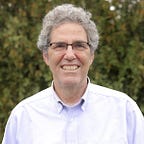Faust on the Midway: A Story about Climate & Risk
You are walking through the midway of a country fair and a table with a carny attracts your attention with a sign that says, “Win a Thousand Dollars.” You ask how to win the money and he explains that you pay $10, roll two dice, and if it comes out a 7 or 11, you win the money.
You do the math quickly (you’re good at this) and figure that there are 36 possible rolls of the dice and 8 ways to get a 7 or 11, which means that your odds of winning are pretty good, about 22%. You figure that you don’t have much to lose, so you agree and start to take out your wallet to pay the $10.
But then the Carny looks at you, with eyes that look a little blood-shot and says that he has a better offer. Now, if you roll the winning numbers he will give you $10,000. You are skeptical but start to take out the $10 when he stops you and says that it will cost something more.
“What?” you ask.”
“This time,” he answers, “if you don’t roll a 7 or 11, you need to give me your first-born child.”
You look a little closer at the man and notice small bumps on his head under his cap and a suspicious lift under the cape behind him. You start to get a queasy feeling in your stomach. You hope it’s not too late to walk away.
Decisions are made based on the level of risk. The statistical odds of losing the game did not change but the risks of losing did — — and that changed everything.
Tens of thousands of scientists are saying that the continued burning of fossil fuels could lead to mass extinction of species, severe food shortages, large regions of the planet uninhabitable due to heat or drought, and millions or even hundreds of millions of refugees whose homes are underwater.
They could be wrong. Some scientists disagree. These possibilities might be far enough in the future such that the risks can be avoided .…. but maybe not.
Is this a gamble you would take? Would you roll the dice?
